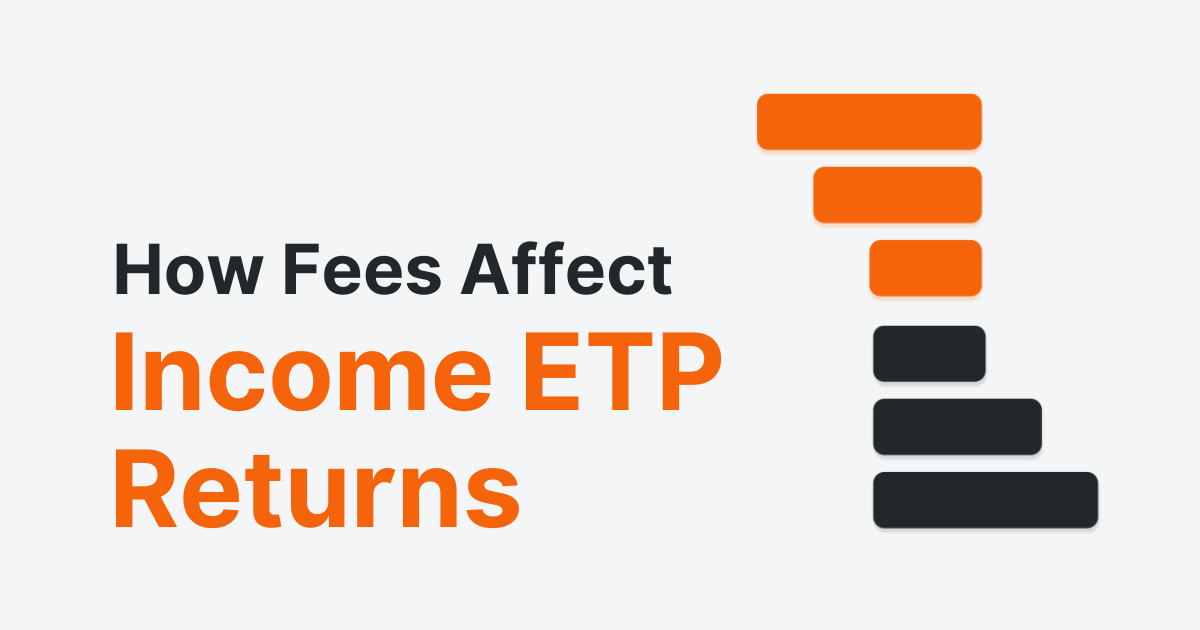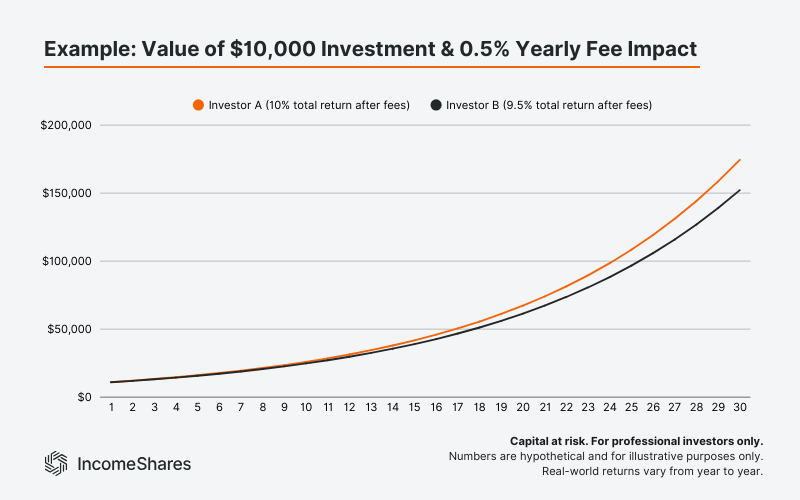
Author
Jonathan Hobbs, CFA
Date
27 Nov 2025
Category
Education
How Fees Affect Income ETP Returns
Your capital is at risk if you invest. You could lose all your investment. Please see the full risk warning here.

Every options income ETP charges fees – and these costs may affect the returns investors keep over time. This article explains how fees work in income ETPs, how they can influence long-term results, and how IncomeShares compares with other funds.
How fees work with income options ETPs
Exchange-traded products typically charge an ongoing fee called a total expense ratio (TER). That’s the yearly cost of running the fund as a percentage of its assets. The TER covers things like management fees, custody, administration, and other operating costs. These costs all gradually come out of the fund’s net asset value (NAV) – rather than as a “one-off charge” to investors.
Then there’s the income side of the equation. Income options ETPs aim to earn cash from selling options – and then pay out income to investors each month in the form of ETP dividends or distributions. Fees don’t change the amount the fund declares as income for the month. They only reduce the fund’s NAV. Still, an investor's “total return” comes from changes in the NAV as well as income. So the TER does affect their total return.
Brokers can also charge investors fees outside of the fund itself. Some brokers charge dealing fees each time you buy, sell, or reinvest income. You might also pay an FX cost if your account is in one currency and the ETP trades in another. ETP shares also trade with “bid–ask spreads” – the small gap between your buying and selling price.
Example: how fees can change long-term returns
Let’s use a hypothetical example to show how fees could affect long-term returns in an income options ETP.
Two investors each put $10,000 into similar ETPs. Both funds follow the same kind of strategy and pay out similar income each month. For simplicity, we assume each investor reinvest all income back into the product. The difference comes from the total return investors keep after fees:
Investor A’s fund: 10% total return per year after fees.
Investor B’s fund: 9.5% total return per year after fees.
So Investor A keeps about half a percent more each year. That extra return doesn’t come from higher risk or more income – but from paying less away in fees.
The chart below compares the after-fee returns of each investor over time. The higher-fee fund returned only slightly less each year. But the impact of fees on total return grew larger with time.

As of 27 November 2025, IncomeShares charges between 0.35% and 0.55% TER across its ETP range. Some income ETPs may charge higher ongoing fees.
Key takeaways
Fees reduce a fund’s NAV over time, not the amount of income declared each month.
An investor’s total return includes both NAV changes and income, so fees still influence long-term results.
Brokers may also charge investors fees outside of the fund itself, such as dealing fees, FX costs, and bid-ask spreads.
Your capital is at risk if you invest. You could lose all your investment. Please see the full risk warning here.
Related Products:
Strategy
Cash-Secured Put + Equity
Distribution Yield
50.76%
Strategy
Cash-Secured Put + Equity
Distribution Yield
38.25%
Strategy
Covered Call
Distribution Yield
12.58%
Strategy
Basket of Income-generating ETPs
Distribution Yield
49.05%
Strategy
Covered Call
Distribution Yield
15.89%
